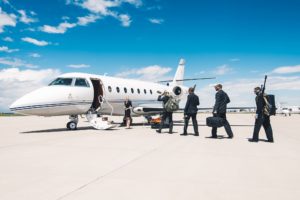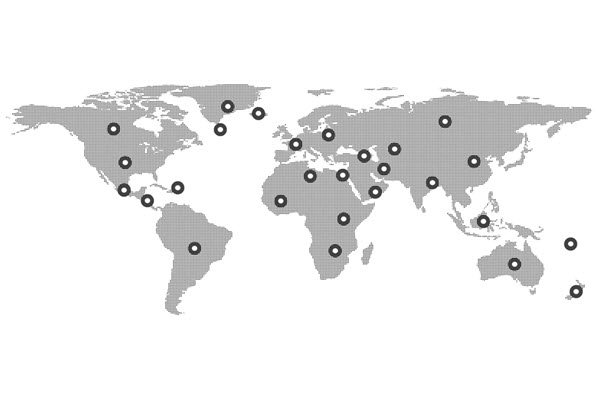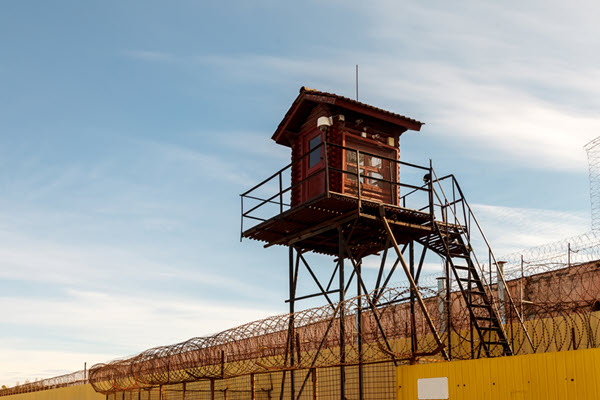Static Security Detail
“Static security detail” is exactly what it sounds like – security personnel stationed at one point. This may involve manning the access points to a residential or business premise, guarding valuables and equipment against theft or loss, providing security at an event, or even personal protection. The bottom line is – it requires the security operative to be onsite.
The main thing you need to consider when it comes to choosing the best static security services is that the personnel you get are appropriate for the situation. This may involve ensuring that they have the right personality, skillset, or level of training required for your specific needs.
So, what can a static security operator do for you? Here’s everything you need to know about this capability and when you may need it.
High Threat Static Security
There are generally two kinds of static security officers: Unarmed security personnel vs. armed security operatives. The latter are generally deployed to man the homes and business premises of Ultra High Net-Worth Individuals (UHNWI), as well as high-profile persons like senior corporate executives, celebrities, politicians, judges, etc.
They are also deployed in high-threat regions and hostile locations and usually have extensive military experience. Some of their attributes include:
- Alertness – They are extremely observant, highly vigilant, always aware of their surroundings, and generally avoid distractions
- Excellent communication skills – They express themselves in a clear, courteous way and can accurately document any security incidents
- Exceptional physical fitness – They usually exercise regularly to remain in a healthy weight range to be able to perform their duties optimally
- High integrity – They don’t engage in dishonest activities that may put the security of the premises where they are stationed at risk
- Outstanding weapon qualifications – They maintain a high level of dynamic marksmanship capabilities
- Professional – They exhibit high standards of professionalism both on and off-duty
Roles of a Static Security Detail
Although the term “static” security implies that the operator should be rooted to one point, that’s not exactly the case. Among their primary roles is to conduct frequent and thorough patrols of the area they are manning to check for suspicious activity and signs of a breach.
This means actively looking for burglars, intruders, thieves, and any sign of forced entry. Anything that looks out of place should immediately be flagged as a cause for concern. Most people aren’t aware of all the other aspects of a static security operator’s job. Some of these include:
- Identifying offenses and taking the necessary steps to prevent them or minimize their impact
- Keeping your property safe from damage stemming from fires, floods, or any other catastrophe
- Minimizing or preventing wastage of resources
- Preventing accidents from happening
As they conduct their regular patrols, static security guards don’t typically stick to a schedule. They may also switch up their routes to add an element of surprise if an incident was to happen.
If something out of the ordinary occurs, they ensure that they log it in their incident book designated for recording such events.
Duties of a Static Security Detail
The specific duties of a static security operator vary depending on the size of the site, what it is used for, the number of people present, whether they’re operating in a hostile or non-hostile environment, among others.
That being said, here’s a list of the duties a static security operator is expected to perform:
- Maintain facility or residential security by conducting routine checks on the property from time to time
- Provide protection of personnel within the residence or facility
- Prevent the entry of unauthorized people into restricted areas
- Prevent the theft of property
- Ensure that the site is secure by checking that all entry and exit points, including windows, are locked, that the alarm system is enabled, and that safety equipment like fire extinguishers are in good working order
- Monitor the premises using closed-circuit TV (CCTV) cameras and look out for any unusual or suspicious activity
- Open the main gate to allow authorized vehicles to enter and exit the premises
- Maintain building security by checking visitors’ ID and logging them into the visitor’s database
- Include details like their name, the entry and exit time of each individual, and the purpose of their visit
- Ensure that the person the visitors have come to see confirms that they were expecting them before authorizing their entry into the building
Protect Your Assets
Although static security officers are supposed to protect a property from intruders, they do so much more than that. They are a great asset to have to ensure that your assets, valuables and person remain protected at all times.
For more information on overt or covert protection at your residence or business premises, get in touch with a Hyperion Security Advisor for a free consultation.



Leave a Reply
You must be logged in to post a comment.